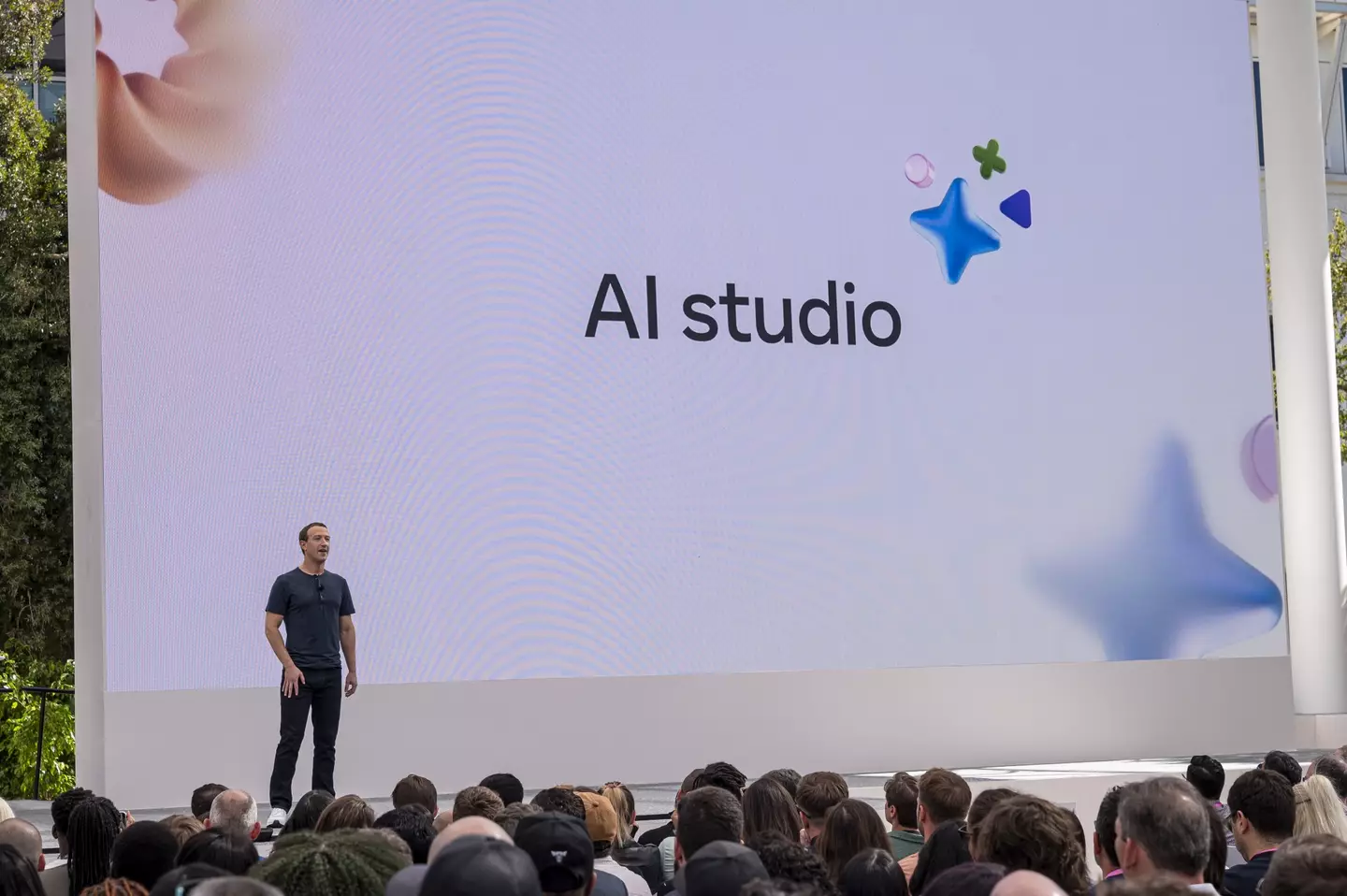
The future of Facebook (well, Meta) is here.
That's right, the social media platform is making its biggest push into artificial intelligence yet.
Instagram and Facebook are said to be opening the floodgates to AI-controlled accounts in a bid to connect with younger generations.
Yes, we apparently can't be trusted to talk to actual human beings anymore.
Advert
While the likes of Snapchat and TikTok are already cashing in on the AI boom, the older platforms are lagging...until now.
In July 2024, Meta launched its AI Studio tool that allows users to make their own chatbots that could make a copy of themselves or create an artificial persona online.
You might not have noticed, but they're already lurking among us, with 'hundreds of thousands' of characters apparently already being created.

The priority for the next two years is to make Meta's apps 'more entertaining and engaging'. Meta already lets AI answer questions from someone's followers, but the next step involves text-to-video generation software that will put those same creators into AI-generated videos.
Speaking to the Financial Times, Connor Hayes, vice president of product for generative AI at Meta, explained, "We expect these AIs to actually exist on our platforms in the same way that [human] accounts do."
Hyping this influx of AI beings, Hayes continued: "They’ll have bios and profile pictures and be able to generate and share content powered by AI on the platform…that’s where we see all of this going." Although Hayes says these AI creations have been kept private for now, they're being encouraged to unleash them onto the World Wide Web.
With this, there are obvious concerns that the Dead Internet Theory' is more alive than ever. We recently shared worries that the Dead Internet Theory was being pushed through by AI, and this does nothing to help the argument that the internet isjust computers talking to computers.
Even for those who aren't creating AI accounts to make Facebook look more populated than it really is, the FT's report claims that the majority of creators are already using AI to enhance their real-world content.

The race is on to capitalize on generative AI as quickly as possible. In September 2024, Snapchat's generative AI tools were rolled out to help creators earn revenue from designing characters for augmented reality experiences.
TikTok wasn't far behind with a whole suite of tools known as Symphony. The trial allows brands and creators to advertise with AI, translate content into different languages, and use AI-generated avatars.
Facebook CEO Mark Zuckerberg previously showed off an AI avatar that was able to host video calls and subdued concerns by reassuring users that they could install protocols to avoid discussing certain topics.
Becky Owen, global chief marketing and innovation officer at creative agency Billion Dollar Boy, warned of the dangers of 'AI slop', saying: "Without robust safeguards, platforms risk amplifying false narratives through these AI-driven accounts."
Remembering the tragic case of 14-year-old Sewell Setzer III who took his own life after becoming infatuated with a chatbot, it's only fair that the concerns of an AI-powered Facebook are addressed.
As Owen concludes: “Unlike human creators, these AI personas don’t have lived experiences, emotions, or the same capacity for relatability."